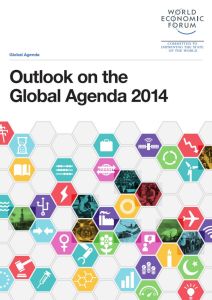Join getAbstract to access the summary!

Join getAbstract to access the summary!
World Economic Forum
Outlook on the Global Agenda 2014
World Economic Forum, 2013
What's inside?
Policy makers and financiers will appreciate this preview of the trends and challenges the world will face in 2014.
Recommendation
The World Economic Forum conducted a global survey of experts and leaders for its 2013 Summit on the Global Agenda. More than 1,500 respondents – from more than 100 countries, from all age groups, and from disciplines encompassing business, academia and government – identified 10 significant trends to watch for in 2014. They also noted how these trends will affect different regions of the world. In several regions, rapid global change, crumbling values and joblessness pose threats to the social order. On the other hand, a promising future in such areas as biotechnology and “networked thinking” offers chances for real progress and reform. Illustrative graphics and clear, accurate prose, much of it written by experts in different fields, present a wealth of timely data. getAbstract finds that this report will be valuable not just to global leaders, but to anyone who believes information is fundamental to improving society. Considering how fast the world is changing, policy makers, financiers and executives should read this report, appreciate the spots of good news, and heed its analysis and warnings.
Summary
About the Author
The World Economic Forum is an independent global organization that engages leaders in business, politics, academia and society to improve the state of the world.





























































Comment on this summary